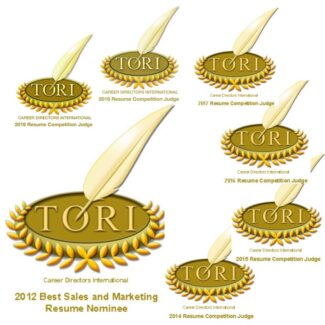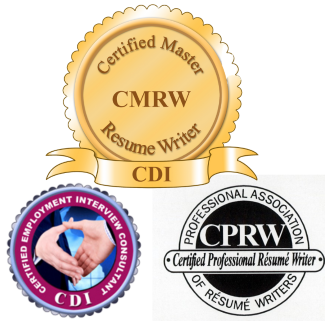As a member of the Career Collective community of resume writers and career coaches, this post is one of many today covering the topic of how to prepare ahead of time for an interview. I encourage you to visit other members’ responses linked at the end of my post and follow our hashtag on Twitter: #careercollective.
The Boy Scout motto, “Be prepared,” applies very well to many situations, not the least of which is job searching. Think about the following two scenarios:
- Positive Patty envisions herself getting called for interviews and prepares herself ahead of time. She gets a call for an interview later this week and spends the next two days reviewing her answers and customizing them for the employer. She pulls her interview suit from her closet, has time for a test drive to the company, and goes in the following day confident and relaxed.
- Negative Ned thinks he’ll never get a call for an interview in this job market. He tells himself it’s a waste of time to prepare before he has anything set up, since it might be weeks or months from now. He gets a call for an interview early next week and has to scramble to pull together an appropriate interview suit and goes on the Internet to start researching possible interview questions. He’s still thinking through his answers to standard questions the night before the interview and realizes he hasn’t even read up on the company yet. He goes in to the interview the next morning tired, frazzled, and unsure of his answers.
Which scenario do you want for yourself? Once you’ve been called for an interview is not the ideal time to begin preparing for an interview, like Ned. The bulk of your preparation should have already occurred to allow yourself to fine tune your answers, conduct company research, and get yourself in the zone, just like Patty.
To get you headed in the right direction, here are my top five actionable suggestions to prepare before the phone rings:
- LinkedIn recommendations. The modern-day approach to professional references is to ask past colleagues to recommend you on LinkedIn, think of it as references 2.0. They’re online, easily accessible to people, and serve as a great third party endorsement of your capabilities and strengths.
- Professional references available upon request. The more traditional approach to professional references is to create a sheet with the contact information for 3-4 colleagues, have its header, format, and font match that of your resume, and have copies ready to bring with you on an interview. I wouldn’t say one method of collecting references is better than the other. It’s smart to do both. One note on who you’re including on the reference sheet, be sure you have their permission to list them (most importantly so they’re not caught offguard with a reference call) and include only professional contacts, preferably including at least one manager and one peer-level colleague.
- Interview preparation is key. This is so easy to do nowadays with all the lists of interview questions available online. Two of my favorites are HR Consultant.net’s list of 2,000 questions and About.com’s list of questions and suggested best answers. I recommend my clients get a notebook or a stack of index cards and write out answers to commonly asked questions to start familiarizing themselves with possible questions and the different ways a question can be asked. Having your answers in a notebook or on a stack of index cards is also great to review the night before – it also makes it easy to put away and pull out for the next time you find yourself in job search mode. There’s no reason to recreate the wheel and think through answers all over again. Just review your notebook or index card stack and update answers, as appropriate, for where you are now.
- Dress for success. Assemble a professional interview outfit now, don’t wait until you’re called for an interview. Invest in a classic, well-made business suit in either dark gray or navy blue and a white dress shirt or blouse. The shoes are not to be overlooked. They should be well maintained and professional. A woman’s heel should be an appropriate height and accessories and perfume should be minimal. Don’t have a good interview suit already hanging in your closet? Go out now and shop for one. It’s not worth the risk of trying to find one last minute.
- Get paid what you’re worth. Salary negotiation can be a stressful part of the interview process. Invest now in Jack Chapman’s book, “Negotiating Your Salary – How to Make $1,000 a Minute” for your personal library. It’s considered by many to be the leading resource on the topic.
* * *
Posts on the same topic from my esteemed colleagues in the Collective:
Sit Down and Panic. The Interview is Yours @GayleHoward
How to Stand Out in a Job Interview @heathermundell
Avoid These Reference Mistakes @DawnBugni
Unspoken Secrets of Job Interviewing Prep: How Your Nonverbal Presentation and Behaviors Impact the Impression You Make @KatCareerGal
Prep for Interviews Now: Snuff out the Elephant in the Room Later! @chandlee
What Should Job Seekers Do Now to Prepare for an Interview @erinkennedycprw
Take a Ride in the Elevator Before You Interview @barbarasafani
Are You Ready for the Elephant in the Room? @WorkWithIllness
“Tell Me About Yourself” (Oh, Yikes!), @KCCareerCoach
The job interview as a shared narrative @WalterAkana
Prepare your references for job search success @Keppie_Careers
No Pain No Gain In Job Search and Interview Prep @ValueIntoWords
Preparing for Career Success Starts with Interviewing the Employers @JobHuntOrg


[…] Job searching? Take a cue from the Boy Scouts @LaurieBerenson […]